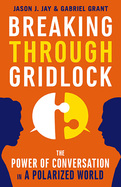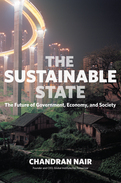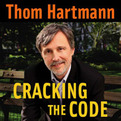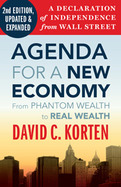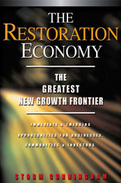Search Results: "Social Venture Networks/books/marketing-that-matters.htm"
Results 139-144 of 345
It seems like everywhere we turn, we're confronted by shaking heads, thumbs down, brick walls, brush-offs, and closed doors. NOs surround us--in our workplaces, in our communities and places of worship, in government, in social settings, in schools, and even within our families.
Whether you're applying for a job, making a request, looking for a house, dating to find the right mate, seeking some type of approval, selling a product or an idea (or yourself), or trying to organize others into getting something accomplished, you're going to encounter rebuffs and resistance. What can you do to overcome so much negativity?
This wise, insightful parable follows our hero who ventures into the Land of NO in search of YES. He watches well-intentioned characters flounder and fail--while noticing other characters using different approaches and achieving success. Our observant hero learns from others' experiences, as well as his own.
Through his journey, you will discover how you, too, can persist in the face of frequent NOs--both the NOs uttered by people around you and, perhaps more importantly, the insidious NOs whispered by your own inner voices.
The second half of the book takes you from parable to practice--with proven tips, tools, and strategies to help you persevere, develop tenacity, persist in the face of rejection, and overcome the inertia of the status quo. Taken together, the two parts of this book provide a how-to manual that's both practical and entertaining. It will help you find the YESes you seek--faster, more effectively, and with a lot less discouragement and despair in the process.
- Cowritten by the authors of the international bestsellers A Peacock in the Land of Penguins (more than 250,000 copies sold) and Walk Awhile in MY Shoes (more than 750,000 copies sold)
- A lively parable that tackles a tough subject--how to overcome negativity to find success, happiness, and affirmation
- Includes practical tips, tools, and strategies to help readers apply the lessons of the parable in their personal and professional lives
- Listen to a podcasted interview with BJ Gallagher on Total Picture Radio
Think about the last time you tried to talk with someone who didn't already agree with you about issues that matter most. How well did it go?
These conversations are vital, but too often get stuck. They become contentious or we avoid them because we fear they might. What if, in these difficult conversations, we could stay true to ourselves while enriching relationships and creating powerful pathways forward? What if our divergent values provided healthy fuel for dialogue and innovation instead of gridlock and polarization? Jason Jay and Gabriel Grant invite us into a spirit of serious play, laughing at ourselves while moving from self-reflection to action. Using enlightening exercises and rich examples, Breaking through Gridlock helps us become aware of the role we unwittingly play in getting conversations stuck. It empowers us to share what really matters – with anyone, anywhere – so that together we can create positive change in our families, organizations, communities, and society.
These conversations are vital, but too often get stuck. They become contentious or we avoid them because we fear they might. What if, in these difficult conversations, we could stay true to ourselves while enriching relationships and creating powerful pathways forward? What if our divergent values provided healthy fuel for dialogue and innovation instead of gridlock and polarization? Jason Jay and Gabriel Grant invite us into a spirit of serious play, laughing at ourselves while moving from self-reflection to action. Using enlightening exercises and rich examples, Breaking through Gridlock helps us become aware of the role we unwittingly play in getting conversations stuck. It empowers us to share what really matters – with anyone, anywhere – so that together we can create positive change in our families, organizations, communities, and society.
The free-market, limited government development model has been an ecological and social disaster for the developing world. Sustainable and equitable development is only possible with the active involvement of a strong central state that can guide the economy, protect the environment, and prioritize meeting their people's basic needs.
In this sure to be controversial book, Chandran Nair shows that the market-dominated model followed by the industrialized west is simply not scalable. The United States alone, with less than five percent of the world's population, consumes nearly a quarter of its resources. If countries in Asia, where 60% of the world's population lives, try to follow the Western lead, the results will be calamitous. .
Instead, Nair argues that development must be directed by a state that is willing and able to intervene in the economy . Corporations, which by design demand ever-expanding consumption, need to be directed towards meeting societal needs or otherwise restrained, not unleashed. Development has to be oriented towards the greatest good—clean drinking water for the many has to take precedence over swimming pools for the few. He provides three compelling case studies demonstrating the benefits of such strong state governance and the findings of weak state governance.
This will mean rethinking the meaning of concepts like “prosperity,” “freedom,” and “rights,” and whether democracy is always the best way to ensure responsive government—as Nair writes, “A democracy that cannot work to improve the life of its citizens is not better than a non-democracy that can actually improve quality of life.” Many people will find these to be challenging ideas, but what Nair offers is a model suited to the realities of the developing world, not the assumptions of the dominant culture.
In this sure to be controversial book, Chandran Nair shows that the market-dominated model followed by the industrialized west is simply not scalable. The United States alone, with less than five percent of the world's population, consumes nearly a quarter of its resources. If countries in Asia, where 60% of the world's population lives, try to follow the Western lead, the results will be calamitous. .
Instead, Nair argues that development must be directed by a state that is willing and able to intervene in the economy . Corporations, which by design demand ever-expanding consumption, need to be directed towards meeting societal needs or otherwise restrained, not unleashed. Development has to be oriented towards the greatest good—clean drinking water for the many has to take precedence over swimming pools for the few. He provides three compelling case studies demonstrating the benefits of such strong state governance and the findings of weak state governance.
This will mean rethinking the meaning of concepts like “prosperity,” “freedom,” and “rights,” and whether democracy is always the best way to ensure responsive government—as Nair writes, “A democracy that cannot work to improve the life of its citizens is not better than a non-democracy that can actually improve quality of life.” Many people will find these to be challenging ideas, but what Nair offers is a model suited to the realities of the developing world, not the assumptions of the dominant culture.
By the bestselling author and XM and Sirius Satellite radio host heard on more than eighty radio stations coast to coast seven days a week
Shows progressives how to master the science and technology of persuasive communication and counter the right-wing message machine
Offers exercises and examples throughout to help readers put the concepts they’re learning into practice
Millions of working Americans talk, act, and vote as if their economic interests match those of the megawealthy, the multinational corporations, and the politicians who do their bidding. How did this happen? According to Air America radio host Thom Hartmann, the apologists of the Right have become masters of the subtle and largely subconscious aspects of political communication. It’s not an escalation in Iraq, it’s a surge; it’s not the inheritance tax, it’s the death tax; it’s not drilling for oil, it’s exploring for energy.
Conservatives didn’t intuit the path to persuasive messaging—they learned these techniques. There is no reason why progressives can’t learn them too. In Cracking the Code, Hartmann shows you how. Drawing on his background as a psychotherapist and advertising executive as well as a national radio host, he breaks down the science and technology of effective communication so you can apply it to your own efforts to counter right-wing disinformation. It’s both an art and a science—as Hartmann explains, political persuasion is as much about biology as ideology, about knowing how the brain processes information and how that influences the way people perceive messages, make decisions, and form a worldview.
Throughout the book, Hartmann shows you precisely how to master this technology, providing examples dating back to the time of the Founding Fathers. As you read deeply in this book, you’ll see things you hadn’t realized were there—in everything from advertising to political rants—and discover abilities you didn’t know you had. Whether you’re a politician, an activist, a volunteer, or a concerned citizen, you’ll develop a strong sense for how to reach into that part of the collective human psyche where we truly do have the power to create a new world.
NEW EDITION, REVISED AND UPDATED
Nearly two years after the economic meltdown, joblessness and foreclosures are still endemic, Wall Street executives are once again getting massive bonuses, and our leaders in Washington lack the will to make desperately needed fundamental changes to the economy. Change will have to come from below. Agenda for a New Economy is the handbook for that revolution.
In this revised and updated edition David Korten has fleshed out his vision of the alternative to the corporate Wall Street economy: a Main Street economy based on locally owned, community-oriented “living enterprises” whose success is measured as much by their positive impact on people and the environment as by their positive balance sheet. We will lose nothing in the process because, as Korten ably demonstrates, the supposed services Wall Street offers are simply a con game. And Korten now offers more in-depth advice on how to mount a grassroots campaign to bring about an economy based on shared prosperity, ecological stewardship, and citizen democracy.
The Restoration Economy reveals the previously undocumented trillion-dollar global industries that are restoring our natural and manmade environments. Restorative development is rapidly overtaking new development because we are running out of things to develop. Most natural areas are already either farmed or degraded, and cities have built all the way to their borders. However, there is no lack of things to redevelop and restore. Storm Cunningham surveys the wide range of restoration industries and points out the connections among them. He shows, for example, how the restoration of a river ecosystem can have a major impact on the commercial success of a redeveloped historic urban waterfront. Written for a broad range of audiences, The Restoration Economy is an entertaining blend of business, science, and economics that details exciting new business and investment opportunities in this dynamic economic sector.
- The first book to reveal the "hidden" trillion-dollar-plus industry that is revitalizing our manmade and natural environments
- Written for a broad range of readers, including businesspeople, investors, and numerous other professional, community, and government groups
- Describes the explosive growth in restoration activity in eight different areas



